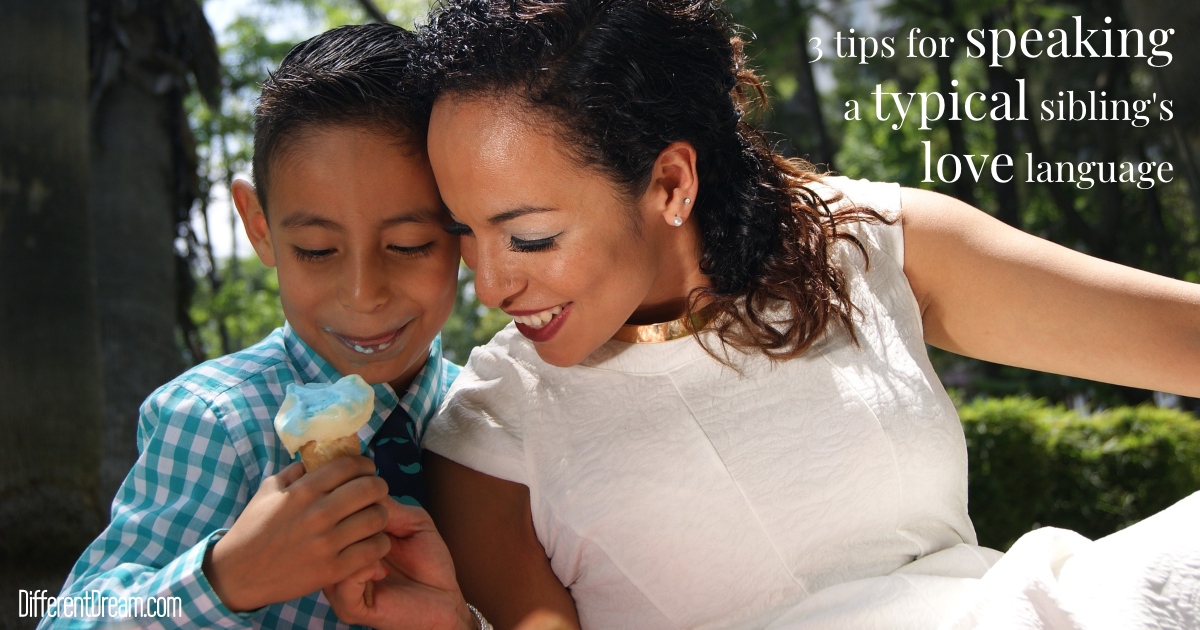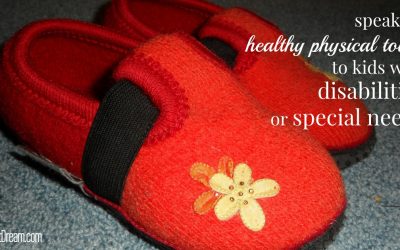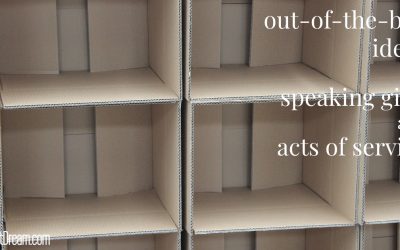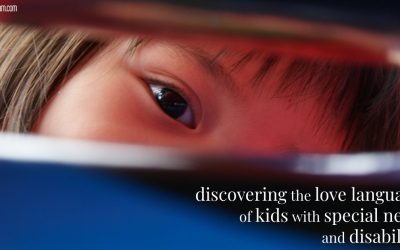Using the Love Languages with Siblings of Kids with Special Needs and Disabilities

Using the love languages with siblings of kids with disabilities and special needs is important. That’s a statement caregiving parents can agree with. Implementing the practice, however, is an entirely different kettle of fish.
The needs of our kids with special needs feel more urgent.
They require more time.
They drain our energy.
And yet, our typically-developing kids are children, too.
They need our attention.
They need us to speak love in the language they understand best.
Thankfully, the parents I interviewed while writing Sharing Love Abundantly in Special Needs Families: The 5 Love Languages® for Parents Raising Kids with Disabilities shared many great ideas about how to do just that. Here’s a smattering of the wisdom found in chapter 7 of Sharing Love Abundantly.
- Be intentional about creating one-on-one time. This can be as easy as taking the typical sib with you while running errands. Or taking them out to lunch once a quarter during the school year. You get the idea.
- Create family traditions. One family made Friday pizza and movie night. After pizza, everyone got into their pajamas. The whole family watched the first movie together. Then the siblings with special needs went to bed and the rest of the family watched a second movie.
- Encourage typical kids to use the love languages with their disables siblings. Teach them how to speak love in their siblings’ primary love language and give them time to practice. The encouragement and guidance you provide will be interpreted by the typical siblings as their primary love language. So it’s a win-win situation.
You’ll find many more stories and creative ideas about using the love languages with siblings of kids with disabilities and special needs in Sharing Love Abundantly. I encourage you to give them a try and to come back in a few weeks for the next post in this series, which will explore ways to share the love language concepts with friends and extended family.
Links to other articles in this series:
The Love Languages and Special Needs Families: A Good Combination
Basic Love Language Concepts to Ease Stress and Increase Joy in Caregiving Families
Threats to Caregiving Marriages and How To Fight Them
Love Is a Child’s First Language
Determining the Love Language of a Child with Special Needs or a Disability
Ways to Speak Words of Affirmation and Quality Time to Kids with Special Needs
Ways To Speak Gifts and Acts of Service to Kids with Special Needs
Speaking Healthy Physical Touch to Kids with Special Needs
Extended Family Members Can Use the Love Languages to Encourage Caregiving Parents
Communicating Your Child’s Love Language to Medical Professionals
Communicating Your Child’s Love Language to Educators
Do you like what you see at DifferentDream.com? You can receive more great content by subscribing to the monthly Different Dream newsletter and signing up for the daily RSS feed delivered to your email.
By Jolene
Jolene Philo is the author of the Different Dream series for parents of kids with special needs. She speaks at parenting and special needs conferences around the country. She’s also the creator and host of the Different Dream website. Sharing Love Abundantly With Special Needs Families: The 5 Love Languages® for Parents Raising Children with Disabilities, which she co-authored with Dr. Gary Chapman, was released in August of 2019 and is available at local bookstores, their bookstore website, and at Amazon.
Subscribe for Updates from Jolene
Related Posts
Speaking Healthy Physical Touch to Kids with Special Needs
Speaking healthy physical touch to kids with special needs and disabilities can be done in ways surprising to parents and other caregivers.
Ways To Speak Gifts and Acts of Service to Kids with Special Needs
Ways to speak gifts and acts of service to kids with special needs and disabilities are plentiful. This post offers some creative ones!
Determining the Love Language of a Child with Special Needs or a Disability
Determining the love language of a child with special needs or a disability is easier than you may think with the help of these 5 strategies.






0 Comments